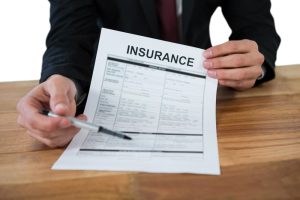Car accidents in Florida can quickly become overwhelming, especially when dealing with insurance claims and figuring out how to cover unexpected expenses. If you’ve been involved in an accident, you might be familiar with the basics of filing a claim, but Florida’s no-fault car insurance system introduces specific rules and processes.
Unlike most other states, Florida’s no-fault law requires each driver to rely on their own insurance provider for coverage, regardless of who caused the accident. This system can be both advantageous and confusing, so understanding the details can be crucial to securing the financial support you need.
Whether your accident happened in Boca Raton on Glades Road or along busy stretches like I-95 or Federal Highway, a closer look at no-fault insurance with the guidance of an experienced car accident lawyer can help you understand the claims process with greater confidence and clarity.
What Is a No-Fault Car Insurance Claim?
In Florida, no-fault insurance—also known as Personal Injury Protection (PIP)—is required for all registered vehicles. This unique insurance coverage is designed to reduce the need for litigation by mandating that each driver’s insurance company covers certain expenses, even if their policyholder is partially or fully responsible for the crash.
Under Florida law, PIP coverage helps pay for medical bills, lost wages or income, and other out-of-pocket expenses. However, it does not cover damages related to vehicle repairs or pain and suffering unless specific conditions are met.
No-fault insurance can simplify the immediate aftermath of a collision by reducing the need to determine liability for payment of medical expenses. For example, if you’re injured in a minor accident on Palmetto Park Road or A1A near Deerfield Beach, you can quickly access PIP benefits through your own insurance policy rather than waiting for a fault determination. However, if your injuries are severe, Florida law provides pathways to step outside the no-fault system, allowing you to seek further compensation.
Understanding PIP and What It Covers
PIP insurance is unique because it covers specific damages related to personal injuries without focusing on fault. It’s essential to understand the types of expenses that PIP can cover if you’re in a crash:
- Medical Bills: PIP can pay up to 80% of your necessary and reasonable medical expenses, such as hospital visits, surgeries, medications, and rehabilitation.
- Lost Income: If your injuries prevent you from working, PIP can cover up to 60% of your lost income.
- Funeral Expenses: In the tragic event of a fatal accident, PIP can also cover reasonable funeral costs.
Despite these benefits, PIP limits may not fully cover all expenses in more serious accidents, which is why understanding your options beyond no-fault insurance can be beneficial.
How No-Fault Car Insurance Works in Practice
No-fault insurance allows each driver to submit claims directly to their insurance company after an accident. So, if two drivers collide on Florida’s I-95 or along Congress Avenue, they each turn to their own insurer for coverage. This setup is intended to speed up access to benefits and lessen the need for legal disputes.
However, the minimum PIP coverage required in Florida is just $10,000. If your injuries are serious, and you only have the minimum PIP coverage, you could be left footing a lot of your accident expenses.
When Can You Go Beyond No-Fault Insurance in Florida?
While no-fault insurance is helpful in many cases, it isn’t always enough, particularly in severe accidents. Florida law provides specific thresholds known as the “serious injury threshold,” which allow you to pursue a personal injury claim against the at-fault driver if your injuries meet certain criteria. These include:
- Permanent Injury: If your accident results in a permanent injury, you may step outside the no-fault system to seek additional compensation.
- Significant or Permanent Scarring: Disfigurement from an accident, such as facial scarring, can also qualify as a serious injury.
- Death: If a loved one dies due to accident injuries, surviving family members may pursue a wrongful death claim.
These exceptions exist to ensure that individuals with substantial injuries aren’t limited to the restricted compensation of no-fault insurance. Suppose you’re seriously injured on US-1, or an accident in downtown West Palm Beach has life-changing effects. In that case, these laws provide a way to hold the at-fault party accountable and obtain additional financial support for your recovery.
How to File a No-Fault Car Insurance Claim
If you’re involved in an accident, it’s important to follow the correct steps to ensure your no-fault claim is processed smoothly. Here’s a general guide on filing a PIP claim in Florida:
- Report the Accident Promptly: Notify your insurer as soon as possible, ideally within 24 hours. Delayed reporting can result in claim denial or reduced benefits.
- Seek Medical Attention Within 14 Days: Under Florida law, you must receive medical care within 14 days of the accident to qualify for PIP benefits. Failing to seek timely treatment may jeopardize your ability to claim compensation.
- Document Your Expenses: Gather records of all accident-related expenses, including hospital bills, prescription costs, and transportation to medical appointments.
- Follow Up on Your Claim: Insurance companies typically process claims faster with detailed documentation. Stay proactive by checking the status of your claim.
Remember that PIP coverage is limited, so if you experience lingering pain or suspect that your injuries are severe, seeking legal guidance early on can help you make informed decisions about your options.
Why Insurance Companies Might Dispute Your Claim
Despite Florida’s no-fault insurance laws, insurance companies may still look for ways to minimize or deny claims. It’s not uncommon for insurers to scrutinize each detail, often to reduce their financial liability. Understanding why they might dispute your claim can help you avoid common pitfalls and anticipate challenges. Here are some frequent reasons insurers might push back on a no-fault claim:
- Delays in Seeking Medical Treatment: Insurance companies expect claimants to seek medical care immediately after an accident. If you waited days or weeks to see a doctor, the insurer may argue that your injuries are unrelated to the accident or not as severe as you claim. Seeking prompt medical attention and keeping consistent treatment records can help counter this.
- Insufficient or Incomplete Documentation: Insurance adjusters require clear documentation to justify claim amounts. Missing or incomplete records, such as medical bills, wage statements, or receipts for out-of-pocket expenses, can lead to claim delays or reductions. Ensuring all relevant documents are organized and submitted can help substantiate your claim.
- Pre-existing Conditions: If you have previous injuries or chronic conditions, insurers might try to attribute your current pain or limitations to these pre-existing issues rather than the accident. A doctor’s report that differentiates between old and new injuries, along with records proving how the accident worsened your condition, can be critical in these cases.
- Coverage Limits: PIP (only covers a portion of medical costs and lost wages, and doesn’t cover pain and suffering unless injuries meet specific thresholds. If your claim exceeds PIP limits or includes non-economic damages, your insurer may push back. Understanding what your policy covers—and when you may need to file a separate personal injury claim—can help clarify what compensation you’re entitled to.
- Disputes Over Fault: Although Florida is a no-fault state, insurers may still attempt to reduce your claim by arguing that you were partially responsible for the accident. For instance, if an accident report or witness statement implies shared fault, they may seek to lower their payout. A strong legal advocate can help clarify liability and protect your right to full compensation.
Being aware of these tactics can empower you to build a well-supported claim and counter common challenges from insurers. In many cases, an experienced attorney can help address disputes and ensure your claim is handled fairly.
The Role of a Personal Injury Attorney in a No-Fault Claim
Dealing with Florida’s no-fault insurance process can be challenging, especially if you’re unfamiliar with the legal details or your injuries are substantial. An experienced personal injury lawyer can:
- Advocate for Full Coverage: A lawyer can work with your insurance company to ensure you receive the maximum coverage available under PIP, covering medical bills, lost wages, and other immediate needs.
- Assist in Meeting Legal Requirements: Florida has stringent timelines and requirements for filing a no-fault claim. An attorney can help you understand the filing deadlines, documentation needs, and next steps to avoid any disruptions in your claim.
- Represent You in Serious Injury Claims: If your injuries allow you to go beyond PIP, an attorney can guide you through a personal injury claim to recover compensation for pain and suffering, loss of quality of life, or other non-economic damages.
A skilled personal injury attorney can be a powerful advocate, ensuring your claim is treated fairly and maximizing your chance for full compensation. With their guidance, you can better understand Florida’s no-fault insurance laws and have more time to focus on your recovery.
Steps You Can Take After a Car Accident in Florida to Strengthen Your Case
If you’ve been in an accident, taking immediate steps at the scene can be invaluable for your case. Ideally, you would take photos of the accident, capture vehicle damage and road conditions, gather contact information from any witnesses, and document any visible injuries. These actions can provide strong evidence and support for your insurance claim or potential lawsuit.
However, if you were unable to collect this information at the scene, you still have options. In the days and weeks following the accident, you can take steps to build a robust case and protect your right to compensation. Here are some effective strategies to help support your claim:
- Seek Prompt Medical Attention: Even if you initially felt fine, visiting a doctor as soon as possible after the accident is essential. Some injuries don’t show immediate symptoms, and delaying treatment could weaken your claim. Medical records serve as critical documentation of your injuries and link them directly to the accident.
- Keep Detailed Records of All Expenses: Track any costs related to the accident, including medical bills, therapy costs, vehicle repairs, and any additional expenses like transportation for medical visits. These records will help establish the financial impact of the accident and support a fair claim.
- Document Your Injuries and Recovery Process: Keep a journal of your injuries, pain levels, medical appointments, and how the accident has impacted your daily life. This can be valuable when seeking compensation for pain and suffering, as it shows the ongoing effects of the accident on your well-being.
- Obtain the Police Report: Contact the police department to get a copy of the accident report. This report typically includes important details about the accident, such as involved parties, potential witnesses, and preliminary fault determinations, all of which can support your claim.
- Consult with Witnesses: If possible, reach out to any witnesses you can identify from the accident scene. Their statements about what they saw can be instrumental in supporting your version of events.
- Speak with a Personal Injury Lawyer: A knowledgeable attorney can help you gather evidence, communicate with insurance companies, and ensure that you meet all deadlines for filing a claim.
Taking these steps can significantly strengthen your case, even if you couldn’t gather information immediately after the accident. Building a well-documented case will help ensure you receive the compensation you deserve.
Choosing the Right Legal Representation for Your No-Fault Claim
A trusted personal injury attorney can make the claims process more manageable, especially if you’re unfamiliar with Florida’s complex insurance laws. A skilled lawyer can relieve the stress of dealing with insurers, help ensure you meet deadlines, and provide guidance if you’re eligible for a serious injury claim.
When selecting a lawyer, consider their experience, communication style, and client reviews. Consulting with multiple attorneys can help you find a professional who makes you feel comfortable and informed throughout the process.
Contact Frankl Kominsky Injury Lawyers for Guidance on Your No-Fault Claim
If you’ve been injured in a South Florida car accident and are struggling with the no-fault insurance process, Frankl Kominsky Injury Lawyers can assist you in understanding your options. With decades of experience handling car accident claims throughout Boca Raton, Boynton Beach, and beyond, our attorneys have the knowledge to protect your rights and pursue the full compensation you deserve.
Contact our personal injury lawyer today at (561) 800-8000 or through our online form for a free consultation. Whether you need help with a PIP claim or have suffered a serious injury that allows you to step outside Florida’s no-fault system, our team is here to support you through every step of your case. Let us handle the legal complexities while you focus on recovery and moving forward.
 South Florida Injury Attorneys Blog
South Florida Injury Attorneys Blog




